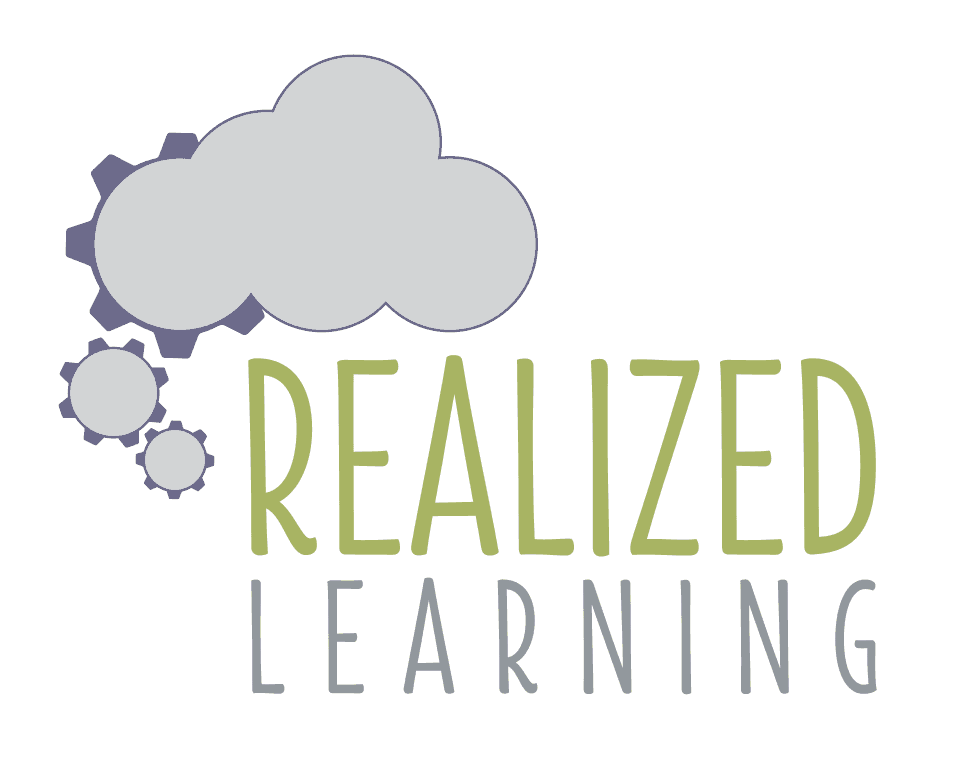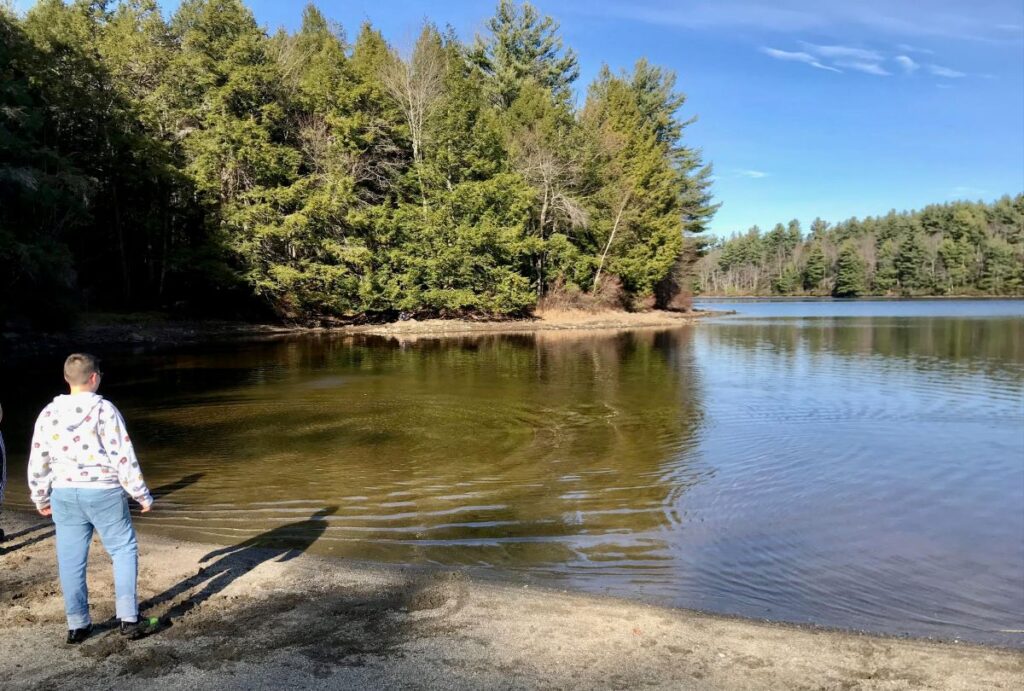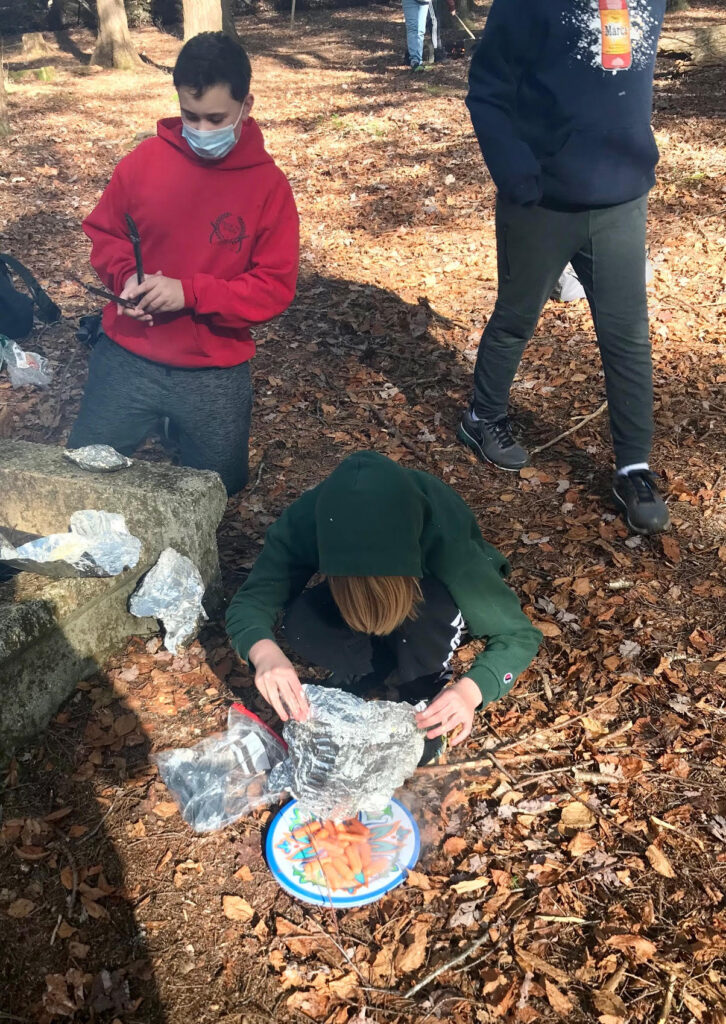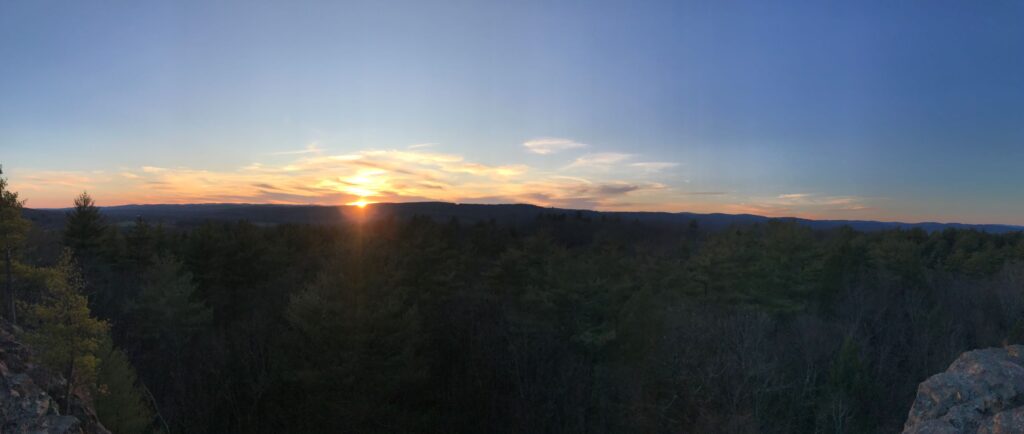Growing up just outside of Boston, I had never spent much time in the woods. My siblings and I weren’t completely deprived of nature, though. We spent blissful summers swimming and sailing on Cape Cod and almost never spent a day indoors, June through August. It wasn’t until I moved to Western Mass to attend college that I experienced the woods. And even then, I didn’t go on my first hike until my junior year. But once I had a taste of being in nature in that way, I wanted more.
Over the years, I’ve come to love the escape. Hiking, biking, camping, canoeing, snowshoeing, running, and fishing have now become a regular part of my life. Being outdoors and experiencing the natural world is now one of my very favorite things to do. In the same way I didn’t really understand what I was missing before experiencing it, it’s hard to explain to someone who hasn’t spent time in nature the kind of joy, invigoration, and connection to life you feel. It’s just something you have to feel for yourself. And while these kinds of positive feelings may not be familiar to everyone, most Americans are not strangers to anxiety, stress, sedation, and lack of inspiration. These negative feelings are considered a given in our culture and have become the norm for many people. Now, with most of us quarantining, and having an increase in screen time, the effects are more prevalent.
While virtual learning has provided an avenue for many children to continue their education, I see that it’s being used not as a tool, but as the center of the educational experience. Some elementary students spend six or more hours a day on a screen. Not only is this unhealthy for the average person, but it’s particularly detrimental to a developing brain. According to Pediatrician Michael Rich, director of the Center on Media and Child Health at Boston Children’s Hospital, “The growing human brain is constantly building neural connections while pruning away less-used ones, and digital media use plays an active role in that process. Much of what happens on screen provides ‘impoverished’ stimulation of the developing brain compared to reality. Children need a diverse menu of online and offline experiences, including the chance to let their minds wander. Boredom is the space in which creativity and imagination happen.” In my experience with students, I’ve seen children developing depression, anxiety, behavior issues, learning regression, and addictive-like behaviors towards screens. When I hear parents tell me that their 4th grader has a melt down when they’re not allowed to play their favorite video game after doing six hours of virtual learning, that tells me there is something seriously wrong. But it’s important to remember that we are all struggling during this time and making the best choices we can. It’s nobody’s fault and assigning blame is not helpful.
What I have found helpful is seeking more balance between screen time and outdoor time. Unfortunately for some, getting out into the woods for a hike or nature walk is a luxury. There are many parents who are working full-time jobs and do not have the time to take their children out, or the access to outdoor spaces. I am grateful that I live in a semi-rural area where hiking trails are a-plenty and there are many spaces to enjoy the outdoors. But even for some local parents, having the outdoors right at their fingertips doesn’t make it easier. Parents are pushed to the max right now with taking care of family, working or finding work, and supporting elderly family members. It becomes even harder if you have a health problem.
This inspired me to offer my outdoor adventures program. I wanted to create a space for children to get outside and take a break from all of the pressure and stress. I also believe that people are more inclined to see the value in nature and want to protect nature when they have a strong connection with it. The outdoor adventures program provides an opportunity for children to learn about nature and how to interact with nature in a safe and respectful way. Each workshop has a theme. The children get to learn a new skill, such as how to build a fire or a shelter. Each child is given the space to try, fail, succeed, and come to their own level of proficiency in a non-competitive and open atmosphere. They are encouraged to share their own knowledge of the outdoors and help their fellow group members. I want to show children that nature has something very special to offer that you can’t find anywhere else.
If you are interested in learning more about my Outdoor Adventures Program, visit my page or contact me directly to learn more. Comment below to share how being in nature has helped you or changed your life in some way!














I think you know how much my gang loves this time with you.
We have so much fun together! <3